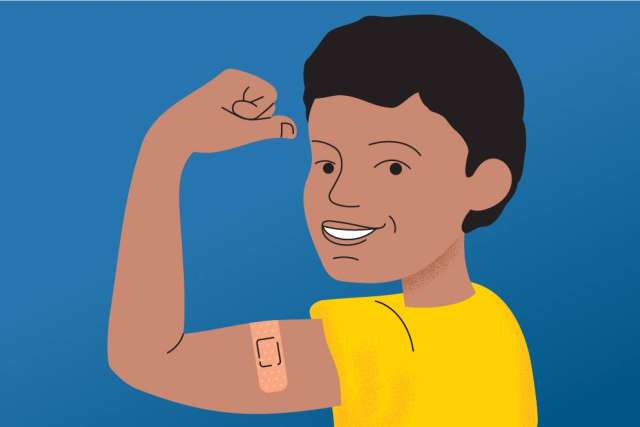That description stems from her vast experience in epidemiology as well as being the mother of a boy who just turned 4.
An associate professor of epidemiology and community health sciences at UCLA Fielding School of Public Health, Dr. Shafir has been tracking and studying how COVID-19 and its variants operate in the community since the start of the pandemic.
More than two years later, she says there are still enough unknowns to keep parents in a state of doubt.
“We know if kids are vaccinated, they’re protected from severe disease, which is very reassuring from a parent – and from a scientific – perspective,” says Dr. Shafir. “But everybody, including kids, can still get infected.”
It actually was easier for parents, she said, when schools were conducting regular COVID-19 tests and requiring students to wear masks. With those regulations no longer in place, the level of comfort in sending a child off to school – with variants such as omicron cropping up – may drop.
Advice for parents
In preparation for the new school year, Dr. Shafir advises parents to approach the COVID-19 safety question differently depending on the age of their child. That’s especially true now that vaccinations are available for the youngest of school-age children.
“For parents of children kindergarten and younger – vaccinate, vaccinate, vaccinate immediately,” she says. “We know that with the Moderna vaccine, kids will reach immunity quicker. With Pfizer, it’s a much longer timeframe.
“In the interest of full disclosure, my child was in the Pfizer clinical trial, but I have nieces and nephews and told their parents to get Moderna.”
The Moderna vaccine regimen for children ages 6 months to 5 years is two doses administered a month apart. The Pfizer vaccine is three doses, with the first two doses given three weeks apart and the third dose eight weeks later. A child is considered fully immunized two weeks after the final dose of either vaccine regimen.
For parents of children who are older than 5, it’s time to get them boosted, Dr. Shafir says. And be prepared to get another booster later in the year, currently in development to better protect against the newest variants.
“There will be an omicron-specific booster against what is currently circulating, keeping them from getting infected – not just keeping them from severe disease,” she says.
Dr. Shafir advises parents of all school-age children that while mask mandates in schools might have been dropped, it’s still a good practice to wear a mask in the classroom. At this stage, she said, it’s important to normalize mask-wearing.
“Have that conversation. Why do we wear masks? Why is it important? It’s to protect people from germs,” she says. “One of the things I’ve noticed is kids from 2 up to those graduating from high school – they just don’t seem to care very much about having to wear a mask. They’re not saying, ‘This is ruining my life.’”
A sense of community
Dr. Shafir says she’s fortunate that her son has been with the same cohort for a while. They dispersed for a period during the summer, so she and other parents at her son’s preschool agreed, as a class community, to have their children tested for COVID-19 before returning to school.
“We’re really trying to develop a sense of community within the classroom, working with a room parent, with the administration,” she says.
One other key piece of guidance Dr. Shafir gives to all parents, regardless of age: If at all possible, have a plan in case your child gets sick.
“We can’t send our kids to school sick,” she says. “We send them to school to be educated and safe during the day. They can’t go to school sick – because that’s how other kids get sick.”
Get the latest information on COVID-19 vaccines.



